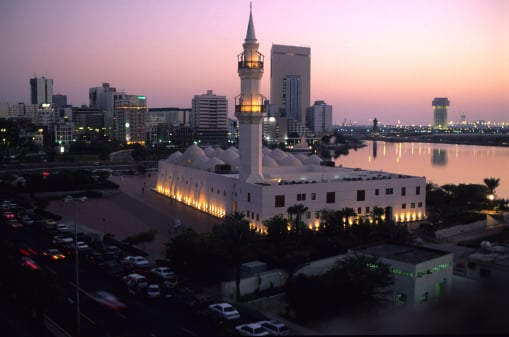Saudi Activist Freed After Two Years In Detention
Mohammed al-Bajadi, a founding member of the banned Saudi Civil and Political Rights Association, was sentenced to four years in prison last year.

Saudi Arabian political rights activist Mohammed al-Bajadi was released from prison on Tuesday, other activists said on Twitter, two years after being detained and a year after he was sentenced to four years in jail.
Bajadi, a founding member of the banned Saudi Civil and Political Rights Association (ACPRA), was sentenced to four years in prison last year and two other founders were sentenced to prison terms of more than 10 years in March.
The fate of human rights activists is closely watched in Saudi Arabia, an ally of the West, after international rights agencies said the authorities stepped up the use of arrests, prison terms and travel bans to end dissent in the past two years.
The Twitter feed of one of the men sentenced in March, Mohammed Fahd al-Qahtani, which is now run by other members of ACPRA, confirmed on Tuesday that Bajadi had been freed, as did the Twitter feed of Bajadi’s brother.
It was not clear under what conditions, if any, he had been released, days before the end of the Muslim fasting month of Ramadan when rulers traditionally show mercy to some prisoners. Other activists have in the past been released only after signing pledges not to resume their campaigns.
A Justice Ministry spokesman was not immediately available for comment.
Saudi Arabia, a monarchy allied to Western countries, has almost no democracy and allows little public criticism of the ruling al-Saud family, senior clerics of its strict Wahhabi school of Sunni Islam, or the security forces.
Political parties are banned and the only human rights groups that have been licensed by the government focus on issues like corruption and inadequate services rather than political freedoms or accusations of abuse by the security forces.
Bajadi was sentenced last April to four years in prison on charges activists said included forming a human rights association, tarnishing Saudi Arabia’s reputation in the media, questioning the independence of the judiciary, encouraging political detainees’ relatives to demonstrate, and owning illegal books.
Qahtani was sentenced in March to 10 years in prison followed by a 10-year travel ban, while his colleague Abdullah Hamad was sentenced to six years in prison and told he must serve the remainder of an earlier suspended sentence of five years.
Another founder, Abdulkarim al-Khader, was sentenced to eight years in prison in June, although the judge said he would only have to serve the first three years.
ACPRA last year issued statements calling for the king to dismiss his late brother, Prince Nayef, as interior minister and to remove him as his heir because of his role commanding Saudi security services, which activists said were responsible for abuses.
Saudi Arabia has repeatedly denied accusations of abuses including torture and wrongful imprisonment.
